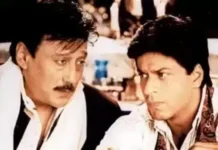
Shefali Jariwala, who shot to instant fame with the superhit music video Kaanta Laga in the early 2000s, has opened up about a personal health battle that remained hidden from the public eye for years. Known for her bold appearance and electrifying screen presence, Shefali became an overnight sensation. However, very few knew that behind her infectious smile and star status, she was silently dealing with a serious neurological condition – epilepsy.
In a recent emotional interview, Shefali bravely revealed that she had been suffering from epilepsy since her teenage years. She shared how the condition not only affected her health but also severely impacted her career choices, limiting her from taking up new work even after becoming a household name. “After Kaanta Laga, people thought I had everything. But the truth was, I was dealing with a major health issue that most people never knew about,” Shefali admitted.
Stardom and Struggles: Two Sides of Her Reality
When Kaanta Laga was released in 2002, it was more than just a hit—it became a cultural phenomenon. Shefali’s bold and confident performance brought her massive fame and public recognition. She was labeled as the Kaanta Laga Girl, and her look became iconic overnight. However, her life behind the spotlight was filled with doctor visits, medical tests, and emotional struggles.
The shocking truth was that Shefali had already been diagnosed with epilepsy as a teenager, much before her big break in the music industry. The condition, which causes sudden and unpredictable seizures due to abnormal brain activity, became a hidden enemy that she had to deal with silently. “There were days when I couldn’t even get out of bed,” she said. “But I still had to smile for the cameras. Nobody knew what was really going on with me.”
What Is Epilepsy and Why It Matters
Epilepsy is a chronic neurological disorder that affects the brain’s electrical system. It causes repeated seizures, which can be anything from momentary blackouts to full-body convulsions. It can affect people of all ages and is often misunderstood in society. Despite affecting over 10 million people in India, epilepsy still carries social stigma and myths.
In Shefali’s case, the journey to diagnosis was also a confusing one. “At first, my family didn’t know what was happening,” she recalled. “They thought it was just fainting spells or maybe due to fatigue or heat. But when it started becoming frequent, we knew something was wrong.” After multiple consultations, tests, and medical evaluations, Shefali was officially diagnosed with epilepsy. It was a turning point in her life, and from that moment, everything changed.
The Career That Could Have Been
Shefali’s popularity after Kaanta Laga opened many doors in the entertainment industry. Offers for films, music videos, and television shows came pouring in. But the one thing she needed the most—physical stamina and long working hours—was something she couldn’t maintain. “I couldn’t take up back-to-back projects. The stress, irregular schedules, and long shoots were risky for my health. I had to reject several great offers,” she revealed.
This meant that even though she was one of the most recognizable faces of that era, she couldn’t ride the wave of her success the way she had hoped. “People thought I was choosy or arrogant. But the reality was, I was just protecting my health,” she said. Many in the film industry, unaware of her medical condition, didn’t understand why she wasn’t accepting more work. This led to missed opportunities and misunderstandings, which only added to her emotional burden.
Facing Social Stigma and Mental Health Challenges
Apart from the physical symptoms, epilepsy also affected Shefali’s mental health. There was a constant fear of when the next seizure would come. This fear, combined with the stress of hiding her condition, made her anxious and emotionally drained. “There were days I felt completely broken. I questioned myself, my choices, and my future,” she confessed.
Another painful aspect of living with epilepsy in India is the social stigma attached to it. “People treat you differently. They don’t want to work with you, they think you’re weak or mentally unstable. That hurts the most,” Shefali shared. She went on to say that the lack of awareness around the illness often made her feel isolated. “I was fighting a battle nobody could see. But I didn’t want pity—I wanted understanding.”
The Role of Family and Love in Her Healing
In her darkest moments, Shefali found strength in her family. Her parents stood by her during the early years of diagnosis and treatment. Later, her husband, actor Parag Tyagi, became her biggest pillar of support. “Parag is the reason I’m still smiling today. He understands me, supports me, and never makes me feel less because of my condition,” she said with gratitude.
Shefali emphasized the importance of having a support system, especially when battling a long-term condition. She encouraged others to reach out and talk about their struggles, rather than suffering in silence. “Whether it’s family, friends, or a therapist—having someone to talk to can save your life,” she added.
Life Beyond the Limelight
While Shefali couldn’t continue her acting career in full force, she never disappeared completely. Over the years, she worked on select projects, appeared on reality shows like Bigg Boss 13, and became an advocate for mental health and epilepsy awareness. She is now more vocal than ever, using her platform to educate people about the realities of living with epilepsy.
She also stays connected with her fans through social media, sharing personal insights, health tips, and positive messages. “I want people to know that epilepsy doesn’t mean the end of your dreams. You can still live a beautiful, successful, and meaningful life,” she said with conviction.
Creating Awareness and Breaking the Silence
Today, Shefali is determined to break the silence around epilepsy. She believes that the first step to change is awareness. “We need to stop treating epilepsy like a shameful secret. It’s a medical condition, and it’s manageable with the right care,” she stressed.
She also wants schools, colleges, and workplaces to become more inclusive and sensitive to people with chronic illnesses. “Everyone deserves a chance. Just because someone has a health condition doesn’t mean they are any less capable,” she said. She hopes that her story will inspire others to speak up and seek help without fear or guilt.
A Beacon of Strength and Inspiration
Shefali’s story is a testament to courage, resilience, and the power of self-belief. Despite facing numerous challenges, she continues to inspire people with her honesty and strength. “I’m proud of my journey. I didn’t let epilepsy break me. In fact, it made me stronger,” she said.
She also left a message for all those who may be silently battling similar health issues. “Don’t give up. Don’t hide. Speak up, take help, and live your life with pride. Your illness doesn’t define you—your spirit does,” she concluded.
The world often sees only the glamorous side of celebrities, but stories like Shefali Jariwala’s remind us that they, too, face real-life struggles. Her brave decision to share her epilepsy journey openly is not just inspiring but also crucial for raising awareness and empathy in society.
In a country where health issues are often hidden due to fear of judgment, Shefali’s voice stands out as a symbol of hope. Her story proves that with the right support, mindset, and courage, anyone can overcome even the toughest challenges. She has turned her pain into power—and for that, she deserves applause, not just as a performer, but as a warrior.


































